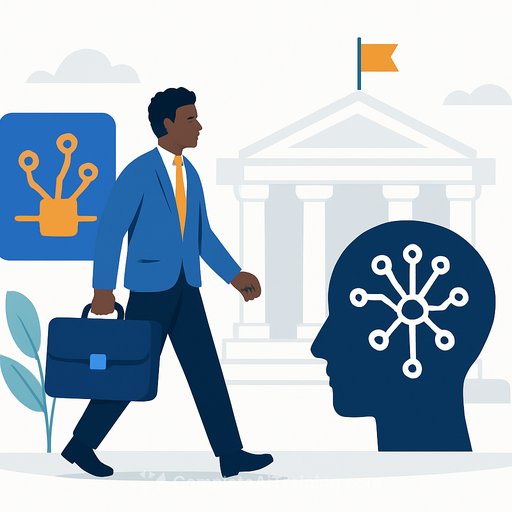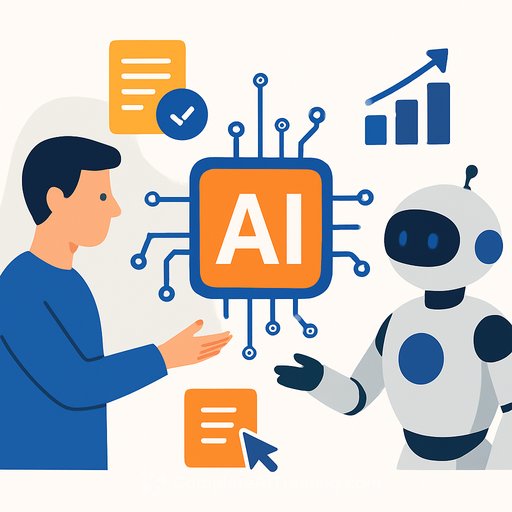UN adopts AI Modalities Resolution: what public leaders should do next
The UN General Assembly has adopted the AI Modalities Resolution, A/RES/79/325, by consensus and without a vote. Sponsored by the United States and co-sponsored by 123 countries, it signals that AI governance is international, urgent, and moving from talk to structure.
The resolution creates two new mechanisms: an Independent International Scientific Panel on AI and a Global Dialogue on AI Governance. The first dialogue begins at UNGA on September 25. Expect a steady cadence of evidence, briefings, and annual reviews that can inform national strategies and procurement policies.
What this resolution sets in motion
- Independent International Scientific Panel on AI: 40 experts, serving in their personal capacity, selected with geographic and gender balance. Co-chairs will be chosen at random from both developed and developing nations. Terms are three years, with conflict-of-interest disclosures required.
- Annual evidence report: The panel will produce an assessment each year, with optional thematic briefs. These will feed both the General Assembly and the Global Dialogue, anchoring political debates in current research.
- Global Dialogue on AI Governance: Annual convening of states and multi-stakeholders-industry, civil society, and others-to address capacity gaps, transparency, and open-source AI models.
Three structural risks to watch
- Funding: As with many UN mechanisms, mandates can outpace budgets. Without sustained resources, both the panel and the dialogue risk becoming advisory in name only.
- US-China rivalry: Tensions could spill into expert selection, agenda-setting, and uptake of recommendations. China's coordination with the G77 on digital policy-including work on the UN Global Digital Compact-shows growing influence in standard-setting. UN Tech Envoy: Global Digital Compact
- Enforceability: Outputs will guide norms, not compel compliance. Expect soft-law effects through procurement, donor conditions, and reference in national strategies.
What this means for governments
The opportunity: align national AI policy with an emerging international baseline while shaping that baseline from the inside. The risk: showing up late and adapting after decisions are already socialized across donor networks and tech vendors.
Action checklist for public agencies
- Assign a point person to track the Global Dialogue and panel outputs; tie this to your AI task force or digital transformation office.
- Prepare inputs on capacity gaps, transparency expectations, evaluation, and open-source considerations; coordinate with your UN mission.
- Map your AI portfolio: inventory systems in use or in procurement; flag high-risk use cases and data dependencies that may be impacted by upcoming guidance.
- Budget for participation: plan travel, staff time, and potential contributions to pilot projects or capacity initiatives.
- Conflict-of-interest protocols: refresh rules for officials engaging in multi-stakeholder forums and for any experts your country may support for the panel.
- Leverage training to close skills gaps in policy, procurement, and oversight. See public-sector-relevant options here: AI courses by job.
Timeline and participation
The first Global Dialogue session begins September 25 at UNGA. Agencies should coordinate early with their permanent missions for speaking slots, submissions, and coalition-building around priority topics. Keep an eye on calls for thematic inputs and information requests tied to the panel's annual evidence report.
For context and official updates, monitor UNGA channels: UN General Assembly.
This week's policy and industry signals
- UK-US tech agreement: Signed during President Trump's visit to the UK, covering AI, semiconductors, quantum, and telecoms-an indicator of tighter transatlantic alignment on strategic tech.
- US House pilots AI tools: Up to 6,000 staffers to test Microsoft 365 Copilot with OneDrive and Outlook for a year-moving AI into daily legislative workflows.
- India's startup pipeline: Google selected 20 AI startups for its accelerator, aiming to deepen local innovation and mentorship.
- Consumer reach: Google integrated Gemini into Chrome for Mac and Windows users in the US, expanding general-use access.
- xAI update: Elon Musk said X's core algorithm will run entirely on AI by November, underscoring platform-scale adoption.
Bottom line
The AI Modalities Resolution creates a channel for science-based guidance and broad consultation. Its impact will depend on funding, geopolitics, and how quickly governments plug into the process. Show up early, come with data and use cases, and align your procurement and oversight to the evidence that follows.
Your membership also unlocks:






